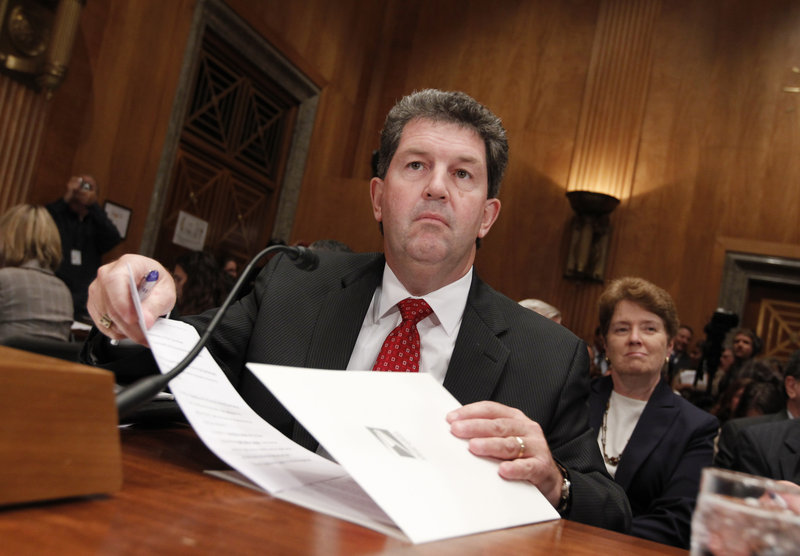WASHINGTON – Postmaster General Patrick Donahoe warned that the Postal Service is on “the brink of default” as he battles to keep his agency solvent.
Without legislation by Sept. 30, the agency “will default on a mandated $5.5 billion payment to the Treasury,” Donahoe told the Senate Homeland Security and Governmental Affairs Committee on Tuesday.
And with no congressional action, a year from now — next August or September — the post office could run out of money to pay salaries and contractors, hampering its ability to operate, Donahoe said.
“We do not want taxpayer money,” he said. “We have got to get our finances in order.”
Committee Chairman Joe Lieberman, I-Conn., said: “We must act quickly. The U.S. Postal Service is not an 18th-century relic, it is a 21st-century national asset, but times are changing rapidly now and so, too, must the post office.”
Sen. Susan Collins, R-Maine, noted that the Postal Service supports a $1.1 trillion mailing industry employing more than 8 million people in direct mail, periodicals, catalogs, financial services and other businesses.
Sen. Tom Carper, D-Del., said several proposals have been put forward to improve postal operations and that Congress needs to work on areas where agreement can be found. Both Carper and Collins have introduced bills to reform postal operations, and measures have also been introduced in the House.
Donahoe and his predecessor, John Potter, have warned for months that without changes in the law governing postal operations, the Postal Service will be unable to make advance payments to cover future retiree medical benefits.
Staggered by the economic downturn and the massive shift from first-class mail to email, the Postal Service lost more than $8 billion last year and is facing losses at least that large this year, despite having cut 110,000 jobs in the past four years and making other changes, including closing smaller post offices.
The agency, which does not receive tax money for its operations, is not seeking federal funds.
Instead, postal officials want changes in the way they operate, including relief from the requirement that the Postal Service prefund medical costs. No other federal agency has to prefund retiree health benefits, but because of the way the federal budget is organized, the money counts as income to the government. Eliminating it would make the federal deficit appear larger.
Also, the Postal Service wants to reduce mail delivery to five days a week, close 3,700 offices, further cut the work force by up to 220,000 employees, and withdraw from federal retirement systems and set up its own. It also seeks the return of $6.9 billion it overpaid into retirement funds.
Send questions/comments to the editors.



Success. Please wait for the page to reload. If the page does not reload within 5 seconds, please refresh the page.
Enter your email and password to access comments.
Hi, to comment on stories you must . This profile is in addition to your subscription and website login.
Already have a commenting profile? .
Invalid username/password.
Please check your email to confirm and complete your registration.
Only subscribers are eligible to post comments. Please subscribe or login first for digital access. Here’s why.
Use the form below to reset your password. When you've submitted your account email, we will send an email with a reset code.